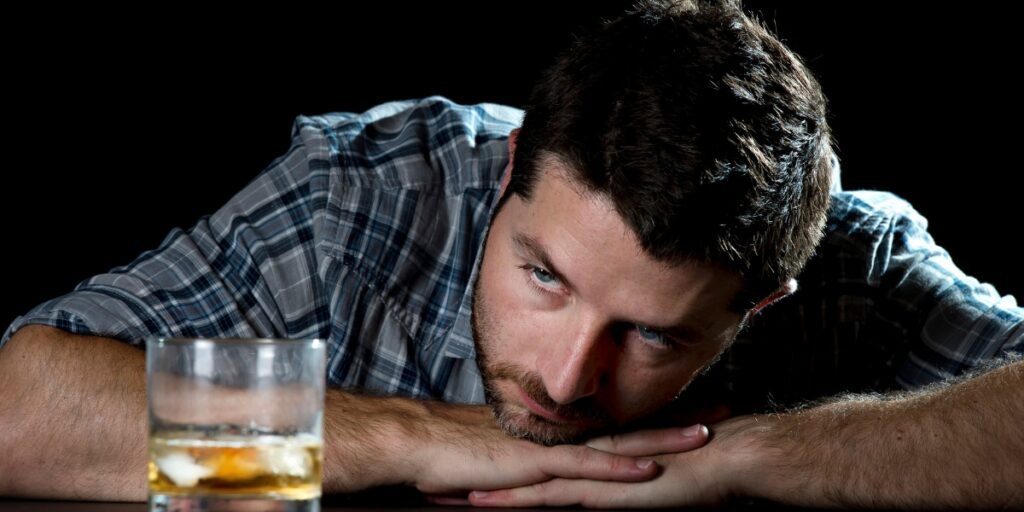Relapse Prevention Plan and Relapse Warning Signs


Recovery is not as simple as leaving a treatment facility and never using drugs or alcohol again; relapse prevention plans and recognizing relapse warning signs are crucial to managing substance use disorders during life after treatment.
Many people will struggle with relapse and setbacks, which is what relapse prevention plans help to manage and deter. For those familiar with the stages of change in addiction treatment, you will realize relapse prevention plans are part of the maintenance stage.
What Is a Relapse Prevention Plan?
A relapse prevention plan is an outline and a guide to help maintain sobriety and navigate challenges and common triggers that may cause a relapse after treatment.
The person in recovery and their friends and family benefit from a relapse prevention plan, as it helps recognize the warning signs of a relapse, gives instructions, and lists healthy coping skills and support techniques to prevent relapse.
Some main components of a relapse prevention plan include:
- List the reasons you stopped using
- Identify triggers and healthy ways to deal with them
- Identify people, places, situations, emotions, and behaviors that can lead to using
- Strategies and plans to avoid common triggers
- List healthy ways to overcome cravings
- Schedules 12-step meetings and addiction group therapy sessions to attend
- List the consequences of using
- Identify short-term and long-term goals you want to achieve in recovery
- List and contact information for sponsors, friends, and family members you can call when you are struggling with sobriety
Treatment programs will work with their patients to create a relapse prevention plan based on what they have learned about their unique needs and goals and which approaches work best for them. Relapse prevention programs can be updated and revised as needed.
Define Relapse in Addiction
The definition of relapse in addiction is returning to using drugs or alcohol after a period of abstinence. There are two kinds of relapse concerning substance use disorders: a slip, a one-time lapse with an immediate return to recovery, or a full-blown relapse marked by a binge or a return to chronic drug use.
The National Institute on Drug Abuse (NIDA) defines addiction as a chronic disease that requires maintenance and ongoing attention. Neglecting their addiction treatment plans leads to declining emotional, physical, and mental health, which leads to relapse.
Relapse can signify several things, including the need to get back to basics and adjust your relapse prevention plan accordingly. But NIDA emphasizes that relapse never represents failure or weakness.

Why Do Addicts Relapse When Things Are Good?
Because addiction is a chronic, lifelong disease, even when things are good, relapse is always a possibility. What may seem reasonable to an outsider may be a possible trigger to the person living with addiction. With someone who struggled with addiction but has been in recovery for a long time and is achieving their goals relapses, it may be the beginnings of a relapse.
Some of the common triggers that lead to relapse when things seem to be going well include:
- Stress
- Boredom
- Isolation
- Returning to old habits, places, and people associated with using
- Testing themselves and their self-control
Relapse, like addiction, does not differentiate between someone who seemingly has it all together and people struggling to get their life in order; anyone who neglects their recovery or believes they know better than treatment experts is at risk for relapse.
How Many Times Do Addicts Relapse Before Quitting Successfully?
There is no magic number of relapses that determine success or failure. Every time a person can stop using drugs or alcohol for an extended period is a success, and each relapse is a learning experience as long as they recommit themselves to recovery.
Some people will never relapse, some will spend their lives cycling between the three stages of relapse, and countless more will have unique journies. Relapse doesn’t mean you aren’t successful; how you deal with a relapse determines success.
Relapse Warning Signs
The best way to prevent a relapse and ensure success is to follow the rules of recovery and know the warning signs of an approaching relapse.
Recognizing the warning signs of relapse can be challenging if you don’t understand what to look for and how the emotions and behaviors leading to relapse can escalate and present themselves. It’s also important to know how to de-escalate those warning signs and re-center your focus.
A vital part of relapse prevention is educating friends and family about your warning signs of being in a stage of relapse, common triggers, and what they can do to help you avoid relapse.
The Stages of Relapse
Relapse is not a spontaneous event but a process that moves through three stages— emotional, mental, and physical, before turning into a full-blown relapse.
Someone may move through the stages of relapse very quickly, and some may spend weeks to months stuck in one phase. The sooner you or your support system can recognize the warning signs of relapse beginning, the quicker you can refer to your relapse prevention plan and refocus on recovery before a full relapse happens.
Emotional Relapse
During an emotional relapse, people are not thinking about using again but are experiencing the negative emotions ad behaviors that led them to drugs or alcohol in the first place. Denial about what is going on is a large part of emotional relapse.
Signs of emotional relapse include:
- Neglecting hygiene
- Not managing co-occurring disorders properly
- Unhealthy eating and sleep habits
- Isolating
- Bottling up emotions
- Mood swings
- Not attending 12-step meetings or going and not participating
- Focusing on other people’s problems
- Lashing out and blaming others for their problems
The common theme in emotional relapse is neglecting self-care, denial, and avoidance. But by not addressing these things, the need to escape and find relief will build and lead to mental relapse.
Mental Relapse
In mental relapse, people struggle between what they know they should do and what they are used to and want to do: self-medicate with drugs and alcohol.
Signs of mental relapse include:
- Craving drugs or alcohol
- Romanticizing past experiences of being high
- Minimizing the consequences of their addiction
- Thinking about people, places, and events associated with past use
- Lying
- Rationalizing when and why it would be acceptable to use again
- Convincing themselves they can control how much they use
- Actively planning to use again
Occasional and passing thoughts of using are normal, but they become persistent and consuming during mental relapse. If these thoughts aren’t explored and irradicated, they lead to physical relapse.

Physical Relapse
Physical relapse is the act of having a drink or using drugs again.
Some physical relapses are “crimes of opportunity,” meaning the chance to use once without getting caught presents itself, and the person takes the risk—for instance, a champagne toast at a celebration or a bump of coke at a bar. However, someone not already in the mental stage of relapse could refuse these offers and have no trouble avoiding relapse.
While using one time and immediately returning to recovery can be considered a slip or a lapse, it is still technically a relapse. For most people struggling with substance use disorders, “just one” quickly turns into a spiral of uncontrollable use. Still, a relapse is not a failure unless you refuse to return to recovery.
Relapse Prevention Therapy at White Oak Recovery Center
Whether you are seeking addiction treatment for the first time or have struggled with addiction for years and need a new approach, White Oak Recovery Center can provide authentic, evidence-based substance use disorder treatment.
At WORC, our whole-person treatment approach addresses addiction’s underlying causes, not just its symptoms, with relapse prevention, cognitive behavioral therapy, and 12-step facilitation therapy to prepare you for a life in recovery and avoid relapse.
One of the significant benefits of a residential treatment program like White Oak Recovery Center is the intensive, superior care each resident receives— allowing for our licensed and experienced team to work closely with you and the goals of your personalized treatment plan.
Reach out to us today. A life rooted in meaningful recovery is waiting for you.

Am I covered for addiction treatment?
Your insurance may cover treatment. Call now for an entirely free and confidential assessment. Recovery starts with a phone call.

- Melemis, Steven. “Focus: Addiction: Relapse Prevention and the Five Rules of Recovery.” The Yale Journal of Biology and Medicine, vol. 88, Sep. 2015.
- Aldred-Crouch, Mary. “Relapse Prevention Plan.” West Virginia Department of Health and Human Services, Nov. 2017.
- “Relapse Prevention Plan.” Florida Courts, Apr. 2017.
- Guenzel N, McChargue D. “Addiction Relapse Prevention.” National Institutes of Health, May 2022.
- “Treatment and Recovery.” National Institute on Drug Abuse, 22 Mar. 2022, Jan. 2023.
- “Principles of Addiction Treatment: A Research-Based Guide.” National Institute on Drug Abuse, Nov. 2019.
Medical Disclaimer:







